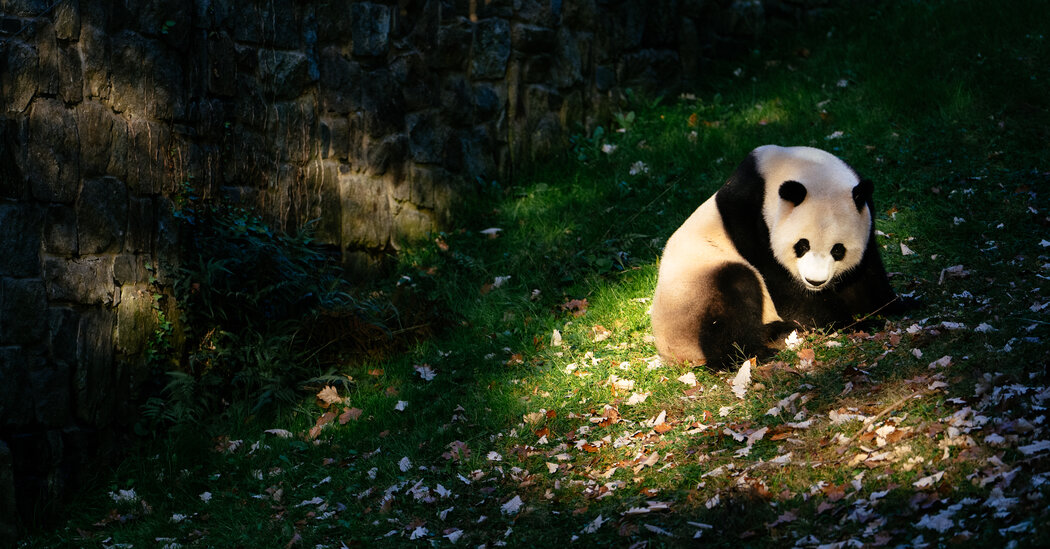It was a long and terrible six months without giant pandas, Washington’s most famous symbol of literal soft diplomacy, but this unbearable (sorry) drought will soon be over.
The Smithsonian’s National Zoo and Conservation Biology Institute announced on Wednesday that two new fuzzy diplomats will soon be on their way to the United States from China. The pandas, Bao Li and Qing Bao, will be flown over before the end of the year, the zoo said in a statement.
They are both 2 years old — young for a Washington power couple — and their anticipated arrival is after the departure in November of two adult pandas, Mei Xiang and Tian Tian, who are the grandparents of the male, Bao Li.
The giant panda swapping has been a characteristic of a longtime pact between the Smithsonian and the China Wildlife Conservation Association. Last year, when the agreement keeping the three in the United States expired, panda fans and diplomats alike worried about tensions between China and Washington, and whether those strained ties would prevent the program from continuing.
At a diplomatic summit in San Francisco in November, Xi Jinping, China’s leader, hinted that the pandas, which he called “envoys of friendship” between the two countries, could be returning to the United States. As it turns out, the two zoos hammered out another agreement without the help of high-level diplomacy, according to officials familiar with the pact who were not authorized to speak publicly about such delicate matters. The San Diego Zoo will also receive a pair of pandas, The Ministry of Foreign Affairs in China confirmed earlier this month.
The point of the agreement between Washington and Beijing is to help foster the breeding and care of the animals, and each panda birth is closely watched and celebrated. If pandas of Washingtons past are any indication, the two newbies, who will arrive aboard a special FedEx aircraft, will be touching down to much fanfare.
The new couple has Washington roots: Bao Li’s mother, Bao Bao, was born in the capital. Michelle Obama attended a naming ceremony for her brother, Bei Bei, in 2015.
Losses are also mourned. Newborn panda cubs are about the size of a stick of butter, and they are extremely fragile — tiny and pink, they can be bruised easily by human handlers or by the mother. Since they are born nearly hairless, their body temperature must be constantly regulated. When they urinate or defecate, human helpers must make sure their fluid and nutrient levels are healthy.
Under these closely watched confines — there is also a live panda cam, but you probably knew that — Bao Bao was a success story and had become a celebrity by the time she was sent to China in 2017.
While they lived in Washington, Mei Xiang and Tian Tian produced four cubs that survived beyond infancy. Their eldest cub, Tai Shan, was born in 2005 and sent to China in 2010. Fans in Washington mourned the bear’s departure. Mei Xiang gave birth to her youngest cub, Xiao Qi Ji, born during the pandemic, at an age when scientists had thought she would no longer be able to have a baby.
The Smithsonian said the terms of the newest agreement were similar to previous ones. Bao Li and Qing Bao, and any offspring they might have, are owned by China, and any cubs born in Washington will have to return by age 4. The pandas are expensive to care for and study, and the Smithsonian has started a $25 million fund-raising campaign to help bolster the program’s budget.
















































